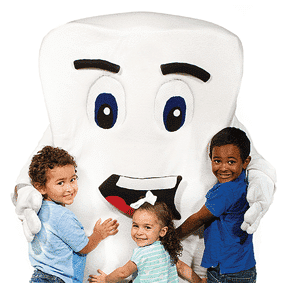While bad breath (halitosis) in kids might not always be a cause for alarm, it can sometimes indicate underlying dental or health issues that need attention. At Tebo Dental, we understand the concern parents have when it comes to their child’s oral hygiene and the connection it has to their overall health. Let’s explore the common causes of bad breath in children and uncover practical solutions to keep those little mouths smelling fresh.
Discovering the Causes of Bad Breath
Bad breath in children can stem from several sources, including:
- Poor Oral Hygiene: The leading cause of halitosis is often inadequate brushing and flossing. When food particles linger in your child’s mouth, bacteria starts to flourish, which can cause an odor.
- Dry Mouth: Saliva helps cleanse the mouth by washing away food particles, sugars, and bacteria from the teeth and gums; therefore, when the mouth is dry, bacteria thrives which can lead to unpleasant odors.
- Eating Habits: Foods with strong odors, such as garlic or onions, can affect breath.
- Oral Health Issues: Cavities, plaque buildup, and gum disease can harbor odor-causing bacteria.
- Medical Conditions: Sinus infections, tonsillitis, and other health issues can contribute to bad breath.
Enhancing Oral Hygiene Practices
Improving daily oral care routines can significantly reduce bad breath:
- Regular Brushing and Flossing: Encourage your child to brush their teeth at least twice a day with fluoride toothpaste. Flossing should also be done daily.
- Tongue Cleaning: Teach your child the importance of gently cleaning their tongue to remove bacteria and food particles.
- Routine Dental Check-ups: Semi-annual visits to Tebo Dental for cleanings and check-ups can prevent oral health issues that cause bad breath.
Addressing Dry Mouth and Dietary Factors
Keeping the mouth moist and encouraging your child to eat healthy foods can also help:
- Hydration: Ensure your child drinks plenty of water throughout the day to help maintain saliva flow.
- Healthy Eating: A balanced diet rich in fruits, vegetables, and whole grains can promote better breath. Limit sugary snacks and drinks, as sugar can contribute to bad breath.
Seeking Medical Advice for Persistent Bad Breath
If bad breath continues despite good oral hygiene habits, it may be time to consult with a healthcare provider:
- Pediatric Dentist Visit: Tebo Dental can assess your child’s oral health to rule out cavities, gum disease, and other related conditions.
- Medical Evaluation: For issues beyond dental health, such as sinus infections or tonsillitis, a visit to the pediatrician is advisable.
Creating a Supportive Environment
Fostering a positive atmosphere around oral care can make all the difference:
- Make Oral Hygiene Fun: Use flavored toothpaste, fun toothbrushes, and brushing apps or songs to make routine dental care an enjoyable experience.
- Lead by Example: Show your children how you take care of your own teeth, making oral hygiene a family activity.
Tackling bad breath in children starts with understanding the cause and knowing how to prevent it. Maintaining good oral hygiene habits, staying hydrated, eating a balanced diet, and attending regular dental check-ups are key to keeping bad breath at bay. At Tebo Dental, we’re here to support you and your child every step of the way, ensuring a future of bright smiles and fresh breath.
Ready to Freshen Up? If you’re concerned about your child’s bad breath, schedule a visit with Tebo Dental. Our pediatric dental specialists are dedicated to providing comprehensive care tailored to your child’s needs.





